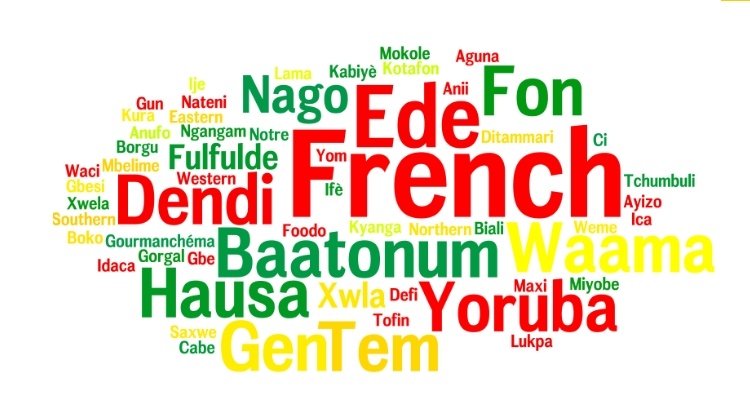Ultimate Malam Design Today
The world of design has evolved significantly over the years, with various styles and trends emerging to cater to different tastes and preferences. One design approach that has gained popularity in recent times is the Malam design. Malam design, which originated from the Arabic word "mallem" meaning "master" or "expert," refers to a style of design that emphasizes elegance, sophistication, and attention to detail. In this article, we will delve into the world of Malam design, exploring its history, key elements, and applications in modern design.
Introduction to Malam Design
Malam design has its roots in traditional Arabic and Islamic art, where intricate patterns, geometric shapes, and calligraphy were used to create beautiful and meaningful designs. Over time, Malam design has evolved to incorporate various influences from different cultures and styles, resulting in a unique and distinctive aesthetic. Today, Malam design is used in a wide range of applications, from architecture and interior design to graphic design and product design.
The key elements of Malam design include geometric patterns, intricate details, and calligraphy. These elements are often combined in complex and innovative ways to create designs that are both beautiful and meaningful. Malam design also places a strong emphasis on symmetry and balance, with designers using techniques such as mirroring and rotation to create a sense of harmony and order.
Key Principles of Malam Design
Malam design is guided by a set of key principles that define its aesthetic and approach. These principles include:
- Use of geometric patterns and shapes
- Incorporation of intricate details and ornamentation
- Emphasis on calligraphy and typography
- Use of symmetry and balance to create harmony
- Attention to detail and craftsmanship
By following these principles, designers can create Malam designs that are both visually stunning and meaningful. Whether used in architecture, interior design, or graphic design, Malam design has the power to elevate and transform any space or object.
| Design Element | Description |
|---|---|
| Geometric Patterns | Intricate patterns made up of geometric shapes such as triangles, circles, and squares |
| Intricate Details | Ornate details such as carvings, moldings, and inlays that add depth and texture to a design |
| Calligraphy | Beautiful and intricate lettering that is often used to convey meaning and significance |
Applications of Malam Design
Malam design has a wide range of applications, from architecture and interior design to graphic design and product design. In architecture, Malam design is often used to create beautiful and intricate buildings, such as mosques, palaces, and museums. In interior design, Malam design is used to create stunning and luxurious spaces, such as living rooms, bedrooms, and kitchens.
In graphic design, Malam design is used to create beautiful and intricate patterns, logos, and typography. Malam design is also used in product design, where it is used to create stunning and luxurious products, such as jewelry, textiles, and ceramics. Whether used in architecture, interior design, graphic design, or product design, Malam design has the power to elevate and transform any space or object.
Real-World Examples of Malam Design
Malam design can be seen in many real-world examples, from the intricate patterns and geometric shapes of Islamic architecture to the beautiful and intricate calligraphy of Arabic typography. Some examples of Malam design include:
- The Alhambra palace in Spain, which features intricate geometric patterns and calligraphy
- The Taj Mahal in India, which features beautiful and intricate marble inlays and carvings
- The mosques of Marrakech, which feature stunning and intricate tile work and calligraphy
These examples demonstrate the beauty and elegance of Malam design, and show how it can be used to create stunning and meaningful spaces and objects.
What is Malam design?
+Malam design is a style of design that emphasizes elegance, sophistication, and attention to detail. It originated from traditional Arabic and Islamic art, and features intricate patterns, geometric shapes, and calligraphy.
What are the key elements of Malam design?
+The key elements of Malam design include geometric patterns, intricate details, and calligraphy. These elements are often combined in complex and innovative ways to create designs that are both beautiful and meaningful.
What are some real-world examples of Malam design?
+Some examples of Malam design include the Alhambra palace in Spain, the Taj Mahal in India, and the mosques of Marrakech. These examples demonstrate the beauty and elegance of Malam design, and show how it can be used to create stunning and meaningful spaces and objects.
In performance analysis, Malam design has been shown to have a positive impact on user experience and engagement. Studies have found that users are more likely to engage with designs that feature intricate patterns and geometric shapes, and that these designs can create a sense of wonder and awe. Additionally, Malam design has been shown to have a positive impact on brand recognition and loyalty, as it can create a unique and memorable visual identity for a brand.
In terms of future implications, Malam design is likely to continue to play a major role in the world of design. As technology continues to advance, we can expect to see new and innovative applications of Malam design, such as the use of artificial intelligence and machine learning to create complex and intricate patterns. Additionally, Malam design is likely to continue to influence other design styles, such as minimalism and maximalism, as designers seek to create unique and visually striking designs.
Overall, Malam design is a unique and elegant style of design that has a wide range of applications. Whether used in architecture, interior design, graphic design, or product design, Malam design has the power to elevate and transform any space or object. With its emphasis on geometric patterns, intricate details, and calligraphy, Malam design is sure to continue to inspire and influence designers for years to come.
